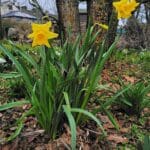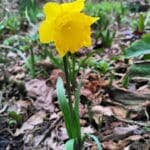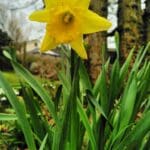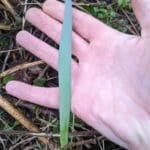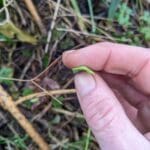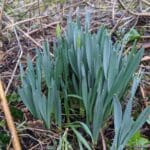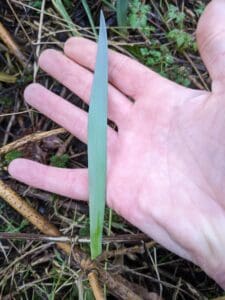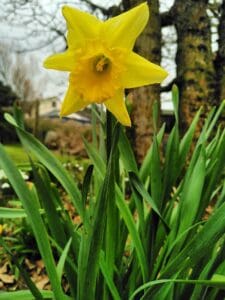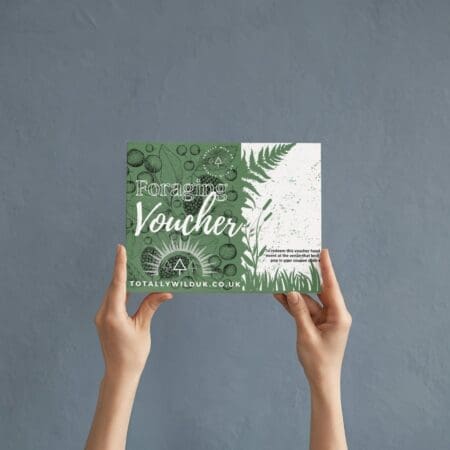Daffodil / Spring / Summer / Toxic
The Daffodil (Narcissus species) is one of the most recognisable and beloved flowers in the UK, signalling the arrival of spring with its bright yellow and white blooms. Often found in gardens, parks, and even wild landscapes, these cheerful flowers are a symbol of renewal and warmth. However, despite their beauty, daffodils are highly toxic to humans and animals if ingested. Their bulbs, leaves, and flowers contain harmful alkaloids that can cause nausea, vomiting, and dizziness.
While they are best admired rather than foraged, daffodils play an important role in pollination and add a splash of colour to the natural world.
In this post, we’ll explore how to identify Daffodils, understand their toxicity, and appreciate them safely in the wild and at home.
Common Names
Daffodil, Easter Lily, Lenty Cups,Yellow Maidens, Peters Leek
Botanical Name
Narcissus pseudonarcissus
Scientific Classification
Kingdom – Plantae
Order – Asparagales
Family – Amaryllidaceae
Physical Characteristics for the Daffodil
Leaves
Hairless flat linear and erect with a grey/green colour turned in on one side, between 12-35 cm
Flowers
Most commonly yellow flowers with 6 petals and a paler trumpet shaped tube in the centre around 3 cm wide. Single flower on a strong firm stem.
Reproductive structures
They start as a single bulb which over time produces new bulbs known as ‘Bulb Division.’
Roots
They have contractile roots, meaning they can move around the soil, often finding the most promising area in which to grow a new bulb
Habitat
Very common wild throughout the UK on grasslands, hillsides, pastures, riverbanks and woodlands (Not including all the planted varieties everywhere else)
Known Hazards
All parts are toxic. If swallowed can cause vomiting, diarrhoea, stomach pain and sickness as well as severe mouth and throat irritation
This plant wont kill you but you will certainly regret your decision to consume it!
Could be Confused with
Certain members of the Allium family (Wild Onions/Garlic), these have a much less solid, straight stem and a completely different flower
Daffodils will not have the very distinct garlicky smell that all Alliums have.
See
Three Corner Leek (Allium triquetrum) Identification – (totallywilduk.co.uk)
Few-Flowered Leek (Allium paradoxum) Identification – (totallywilduk.co.uk)
SPECIAL CAUTION SHOULD BE TAKING WITH ROOTS AS THEY CAN BE ALMOST IDENTICAL!
Edible Uses
Toxic- All parts poisonous
Notes on Herbal Uses
There are many compounds within the plant that have antibacterial, antiviral, anti-fungal as well as being used for its anti tumour properties. Oils have been extracted since the time of the ancient Romans, Greeks and Native American and African peoples.
However its consumption is NOT suggested in any way! I would leave this one to the scientists.
Extra notes from the Foragers
It is worth mentioning it is illegal to pick this plant within the UK, this could be punishable by up to a £5000 fine! They are vitally important to pollinators and helps our native wildlife to thrive
They were originally introduced by the Romans in England as a symbol of mourning for fallen comrades and family.
This flower has a connection to traditional Easter celebrations. The Latin name comes from the Ancient Greek myth of Narcissus who fell in love with his own reflection in a pool of water and inevitably drowned.
The daffodils nodding head is said to embody Narcissus leaning towards the water, it was said that the first flower grew next to the water in which he fell.
It is also where the terms Narcissist comes from, for obvious reasons.



